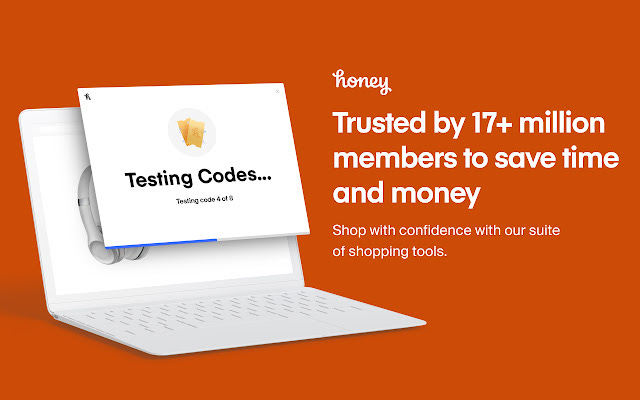#33 How does Honey (acq. by PayPal for $4B) make money?
Browser extension that scrapes the web to find coupon codes during checkout
Hi there! If you find the newsletter content valuable, I would really (really!) appreciate it if you could share the newsletter with your network. It’s easy - You can click here to tweet about it. If you stumbled across this directly, you can find the previous editions here and subscribe to receive a weekly copy in your mailbox!
I’ve been away for a while as I was busy with work and relocation. I will be more regular with the newsletter, I promise ✌️
About Honey
Honey is a browser extension that scrapes the web to automatically find the best deals during checkout on eCommerce websites.
🐣Founded 2012, LA
💵 31.8M in total disclosed funding. 2 rounds undisclosed.
👩💻 17 Million registered members; 167K+ Reviews on Chrome Extension
💰 Members save an average of $126 a year.
How does Honey work?
Honey has 2 main products
Honey Chrome Extension
Honey scrapes the web for discount codes to apply during your eCommerce checkout. It tries all the available coupon codes and when the user checks out, those discounts are automatically applied towards the purchase.
The major advantage for the user is that he or she does not have to spend hours browsing the web to find coupons. Signing up and using Honey is as simple as it gets.
Droplist: Honey tracks price changes and notifies users if price drops
On Amazon Pages
Honey compares every seller to show you the lowest price (even if Amazon doesn’t). Plus, lots of our tools work together to make Amazon even better.
Price History: See how much an item’s price has gone up and down in the past. Based on past trends, you can choose to buy now or wait for another drop.
Honey Mobile App
Honey’s mobile app lets you shop your favorite stores, get amazing deals, discover new finds, and check out - all in one app.
The app brings different stores to you in a single app whenever you’re on your phone.
How does Honey make money?
Honey’s extension and app are free for users. No upfront cost, no subscription required. AND, as per their privacy policy, they do NOT sell any of the user data (which, in my opinion, is a treasure - first-party data about users’ carts).
Sales Commissions
Honey earns a commission from stores when you find savings. As of January 2021, Honey works with more than 30,000 online retailers across 24 affiliate networks including networks like eBay, Groupon, ShareASale, and Rakuten. The full list of affiliate networks Honey uses is listed here
Now that’s counter-intuitive… why would stores pay Honey to give you a discount before a purchase?
The answer is Cart Abandonment Optimisation.
Cart Abandonment ie. users’ tendency to drop off after adding products to check out but not completing the purchase is one of the biggest factors affecting eCommerce conversions. The average Cart Abandonment rate is more than 75% 😲😲
Honey reduces Cart Abandonment by offering discounts at the point of purchase thus increasing the sales of the eCommerce business drastically.
For the fiscal year 2018, Honey (according to PayPal CEO Dan Schulman) generated revenues of around $100 million while growing at a rate of 100 percent. Honey, meanwhile, already operates at a profit. There aren’t any recent revenue numbers for Honey but at that rate, it must be at ~$500 Million in revenue in 2021.
Why did PayPal buy Honey?
PayPal’s business model is charging a 2.9% transaction fee from merchants for successfully facilitating online payments between the merchants and Paypal’s users.
Paypal is facing stronger competition with Stripe, Adyen, and Square wrestling with them for merchants.
Paypal acquired Honey to change the user flow of how users are discovering products, comparing prices & deals, and then ultimately purchasing with Paypal checkout. The implication is Paypal has a truly unique value prop that Square, Stripe, Adyen, Apple Pay don’t have for acquiring consumers: giving “deal hunting” Millennials the perceived “best deal” possible which would drive payment conversion and therefore help merchants with the costly cart abandonment problem.
Given Honey’s value prop to users is “we save you money”, I wouldn’t be surprised if Venmo (also owned by PayPal) users download and use Honey which would drive additional revenue for Venmo.
Given Honey’s revenue and the ability to plugin to Venmo and PayPal networks, the $4 Billion price tag looks like a steal! What do you think? Let me know in the comments.
Hope you like the newsletter content! For more such content, follow me on Twitter. To share this with your network, you can click here to tweet about it.
If you stumbled across this post and would like to receive a weekly article about innovative business models, you can subscribe to this newsletter by dropping your email here.









honey science is shady. the purchase price of honey's coupon app does not add up to reality. and the variety of reported gross revenue earnings on the web from them are extremely suspicious due to how far apart the numbers are in some quotes. none of it adds up - at all. if you look deeper into honey's founders, their dealing, and the allegations against them in federal court, and their business practices you will start to see what i mean.
Hi